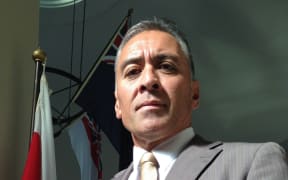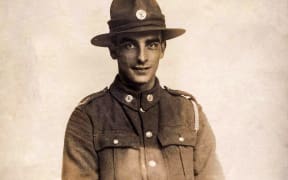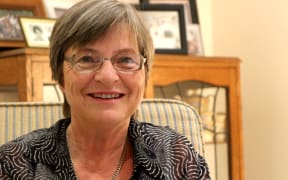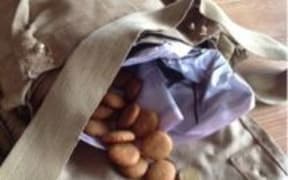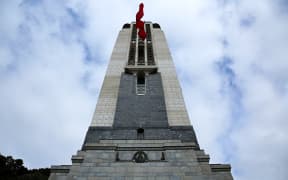Over fifty years after his father's death, the son of a Gallipoli veteran in Nelson this year had a close and poignant brush with his experience of fighting in Turkey.
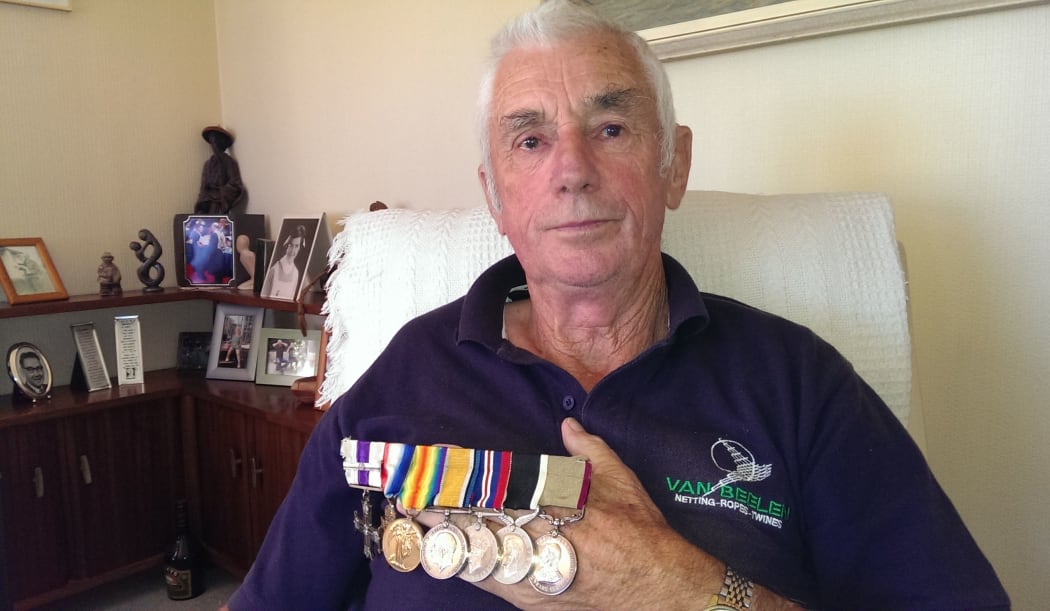
Rod Curtis with his father Ray's medals, which he plans to wear this Anzac Day. Photo: Supplied / Rod Curtis
View 'The War to End All Wars': Radio New Zealand's Anzac 2015 Interactive
Just weeks ago, Rod Curtis discovered an old radio recording in which his father, Ray, spoke about the final days on the peninsula.
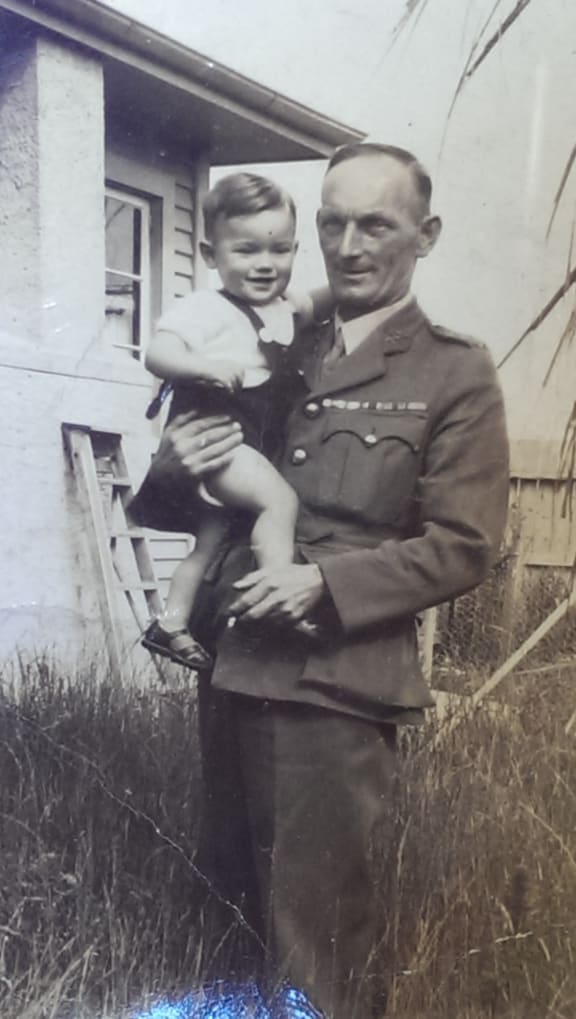
Ray, holding Rod as a baby. Photo: Supplied / Rod Curtis
"It was easy, in this day and age, with technology - I just typed up his name, rank and number into the computer, and I discovered that an interview had been done in 1959 in Timaru. I didn't know anything about that," said Rod.
His son Glen helped him to obtain a copy of the recording from Nga Taonga Sound and Vision, though the pair were both trepidatious about listening to it.
"I sort of just moved things along for him. I thought I'd just leave him to listen to it in his own time.
"To hear his father's voice 50 years after he's died, and to hear a lot of things that maybe he never even knew - quite a heavy thing for him."
At first, Rod wasn't sure whether he would listen to the recording.
"I walked around the house thinking, 'I'm not sure whether I want to: this is going to be like talking to the holy ghost, or listening to the holy ghost.' It was incredible to believe that, at last, after all those years I could hear him talking to me.
"I mean, he taught me as a young fellow all that I know - how to strip a car and how to catch a fish. It was exciting, it really was exciting, but it was completely unexpected."
Ray Curtis went ashore at Gallipoli on Anzac Day. On the recording, he spoke about being the first at the landing, the very last to evacuate, and the person who fired the last shot on Gallipoli.
"We were very very lucky to come out of it at all. We had one gun left at the very last. We hadn't the slightest clue that we were going."
Rod had always kept safe his father's medals and photos from his army service in the First World War, but hadn't realised what a close call it had been for his father.
"Dad was fortunate - I don't know why his number didn't come up.
"He went away to Gallipoli, as a young fellow - he was very young, as was everyone who went away in those days."
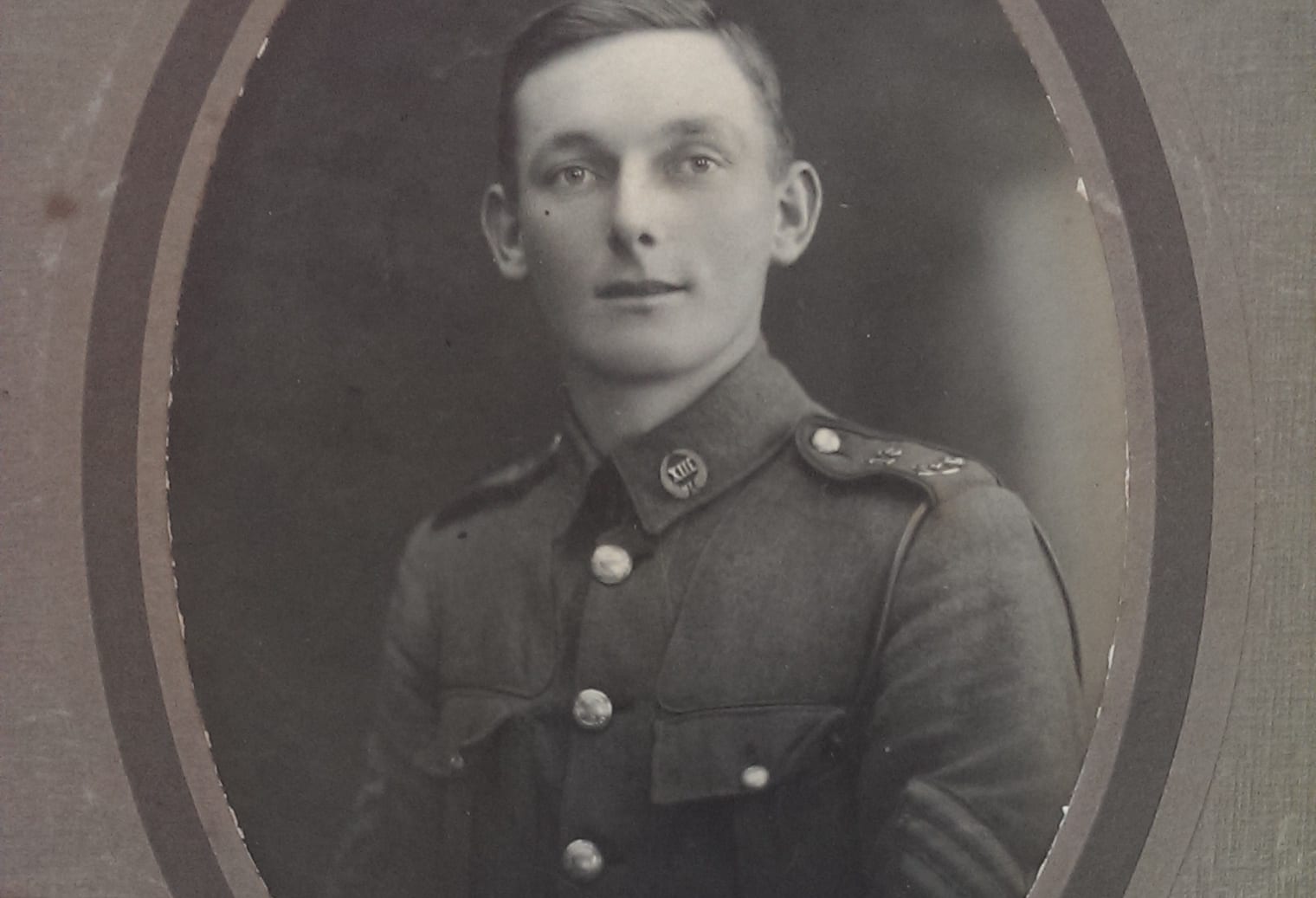
A photo of Ray Curtis, taken just before he left for the war. Photo: Supplied / Rod Curtis
The excitement in Ray's voice, as he recounts how the New Zealanders left Gallipoli, is palpable:
"We left a lot of booby-traps behind us, bombs with the pins drawn, and wrapped up in blankets so they couldn't explode until they were disturbed; grenades of all types - anything we could devise in the way of a booby trap we left behind, to give them a bit of a surprise and some interest.
"All the explosives that we could possibly muster, many hundreds of explosives left behind, all put in under the Turkish trenches, and it was the engineer's job to press the button and blow them up as they stepped into their boat.
"We were about half a mile out when the thing went up, it was very spectacular, made a terrific noise, of course, there was a lot of flame.
"The Turks must have been terribly alarmed, because when the mines went up, they started to fire at random, of course, being night-time: the bullets and hardware was landing around us, though nobody seemed to be hit."
Despite the specifics of the campaign, Rod is proud of his father's efforts, and will be wearing his medals come Anzac Day.
"Do I wear them? Yes, I am very proud to wear them. As the immediate next of kin, I'll wear them with honour.
"To hear what Dad was saying, they were backing off the beach with the last of his men having set the place up, and then seeing the whole place turning into what I would describe as a monumental Guy Fawkes' day.
"Well, not something that you talk about every day - it's part of history, in the way it went, unfortunately.
"The Turks didn't know what was coming. They cocked the whole lot - that's not something to be proud of, but it was something that had to be done."
For Glen, who was born three years after Ray's death, the recording was an opportunity to learn about his grandfather's life first-hand.
"It kind of sounds like he was quite good at war.
"You would think you could hear the fear and everything, but, as he said in the recording, it wasn't really a fear thing, it was more of an adventure, in his words."
A hundred years after his father's 'escapade', Rod will mark the centenary in Greymouth, though the experience of hearing about his father's war-time experience is something he will remember long after the day itself.
"It's incredible to hear him. It really is. It's something that I'll take to my grave."
